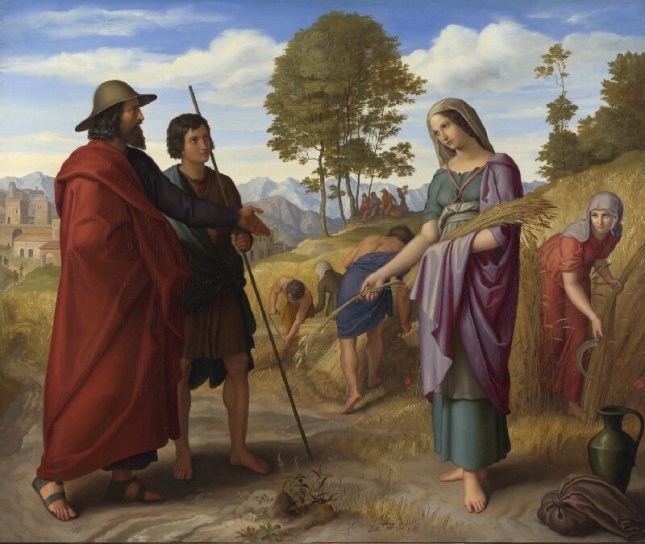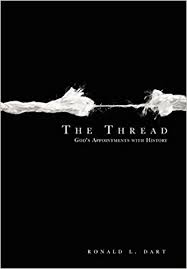 The November 2, 2021 edition of my Daily Verses came from Deuteronomy 22: 9-11 (below). Because the meaning and intent of these three verses from God’s Law (Torah: “instructions”) are often not immediately clear on first reading, I’m giving us all some help.
The November 2, 2021 edition of my Daily Verses came from Deuteronomy 22: 9-11 (below). Because the meaning and intent of these three verses from God’s Law (Torah: “instructions”) are often not immediately clear on first reading, I’m giving us all some help.
This post comprises two brief excerpts from Ronald L. Dart’s book Law & Covenant, in which he deals with this problem in his usual expert, intelligent, yet wonderfully down-to-earth style. I hope you are blessed and enlightened by his words.
Law & Covenant
by Ronald L. Dart
from Chapter 3: Law and Meaning
 With typical wrongheadedness, we often make big issues out of things that aren’t very important while we give too little attention to more serious matters. It is tempting to ask, “Do I have to do this?” rather than ask, “What does this mean? What lies behind it? What is the underlying principle? How might it apply in real life?”
With typical wrongheadedness, we often make big issues out of things that aren’t very important while we give too little attention to more serious matters. It is tempting to ask, “Do I have to do this?” rather than ask, “What does this mean? What lies behind it? What is the underlying principle? How might it apply in real life?”
Too few people ever get around to asking the immortal, “Why?” To me, that is the truly interesting question when it comes to the law. When I read the Old Testament and encounter an obscure law, I stop and ask, “Why did God say that?” I can’t see any way to apply the law in the here and now, but the natural question that follows is, “Why was this a law in the first place?” I have come up with some intriguing questions, though not quite so many answers.
I spotted a bumper sticker once that proclaimed proudly, “God said it, I believe it, and that settles it for me.” That makes life much simpler, but the fellow driving the car might well be wearing wool and Dacron slacks. He probably has no idea that God handed down a law of mixed fabrics. Yes, God said it. Yes, he believes it. But so far, he hasn’t done it. He has likely overlooked the importance of understanding those things that God has said. Solomon wrote: “Wisdom is supreme; therefore get wisdom. Though it cost all you have, get understanding” (Proverbs 4:7 NIV).
Blind obedience may be better than no obedience at all. Sometimes you don’t know the reason behind a law until the consequences come home to roost. But still, obedience with understanding is better. Without it, you may cause actual harm in your attempts at righteousness.
from Chapter 4: Understanding Law
It isn’t that easy to show the meaning of all the laws in the Old Testament, but that doesn’t mean the meaning isn’t there. It may mean nothing more than that we have not been paying attention.
Consider this one, for example: “Thou shalt not plow with an ox and an ass together” (Deuteronomy 22:10). Now I am no authority on agriculture, and I didn’t immediately see the problem. I did hear one fellow opine that the fertilizer which fell from the two animals differed in some important way, and it would be bad for the ground to mix them. I fear I was rather rude in my response to that theory. Another gentleman pointed out the obvious, the animals were of such disparate sizes that it simply wouldn’t work. No one would ever think of doing that. I could see that, but all that did was raise another question. Couldn’t man have figured that out for himself? If you simply can’t make that combination work, why would it be necessary to hand down a law? The answer to that came out of the blue.
Years ago, when I was Dean of Students at a college in England, a fellow member of the faculty and I were discussing a young man who was, as young men are wont to do, pursuing one of the female students. I told my friend, “I know that relationship doesn’t look right, and I have a feeling it’s not going to work. Why do I feel that way?” My friend replied: “It’s simple — ‘you shall not plow with an ox and an ass together.” Since the young man’s behavior somewhat resembled one of the named animals, we were both vastly amused.
As it happened, my friend had put his finger on what this law was really about. There can be such differences between two elements, be it the size or pulling power of two animals, the personalities of two individuals, the abilities of two business partners, or even the religions of two persons, that the relationship is unworkable. It is obvious that Paul draws on this law when he uses the word “yoke” as he did: “Be ye not unequally yoked together with unbelievers: for what fellowship hath righteousness with unrighteousness? and what communion hath light with darkness?” (2 Corinthians 6:14).
This raises an interesting distinction. I have heard people ask of this or that passage: “Is it a law, or is it a principle?” I decided to look it up. Here’s what I found:
Principle: A comprehensive and fundamental law, doctrine, or assumption, the laws or facts of nature underlying the working of an artificial device, a primary source, an underlying faculty or endowment.
There’s more, but this will serve our needs. As the question was asked, a law was inflexible, while a principle was optional. But as we become more familiar with biblical law, the roles are reversed. It is the underlying principle that is inflexible. It is the principle that is the fundamental thing. The enforceable stuff is built on the principle. But these are just words. What can we take away from this that means anything in life?
Laws like those I have cited create axioms, aphorisms that imply a universal, underlying truth. In this case, it is a law that there can be such great differences between two people that they should not attempt to be tied together in any way that does not give them the freedom to walk. That law makes as much sense today as it did when Moses wrote it down.
So, what happens if you break it? A loss of salvation? A denial of your eternal reward? No, what breaking this law gives you is heartache, financial loss, and if you are plowing, some busted up harness. As it happens, that is what most of the law is about. It is about life, not salvation. It is optional only in the sense that you can decide to break it and bear the consequences. There will be consequences, and they may not go away just because you are sorry.
As it happens, the verse about plowing immediately precedes the law I cited earlier about wearing a garment of mixed fabric. It suggests that both laws are saying the same thing in different words. What the law is about is recognizing diversity (a good, modern term), and realizing that there are some diversities that just cannot be bridged.
We know that Christ spoke in parables. We know that the parables were not to be taken literally, but were intended to convey a deeper meaning. It was a meaning that was conveyed to some and hidden to others. It seems that God did much the same thing with the law.
_________________________
Ronald L. Dart: Law & Covenant. Wasteland Press, Shelbyville, KY. Copyright 2006, pp.28-29.
| ARTICLE © 2021, DR. GROVER B. PROCTOR, JR. — ALL RIGHTS RESERVED |










